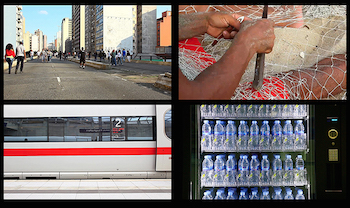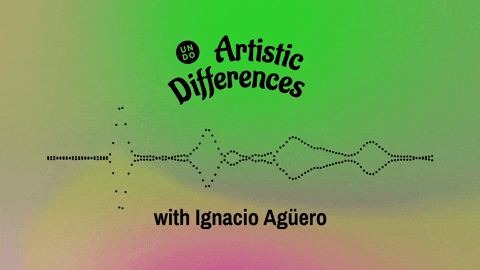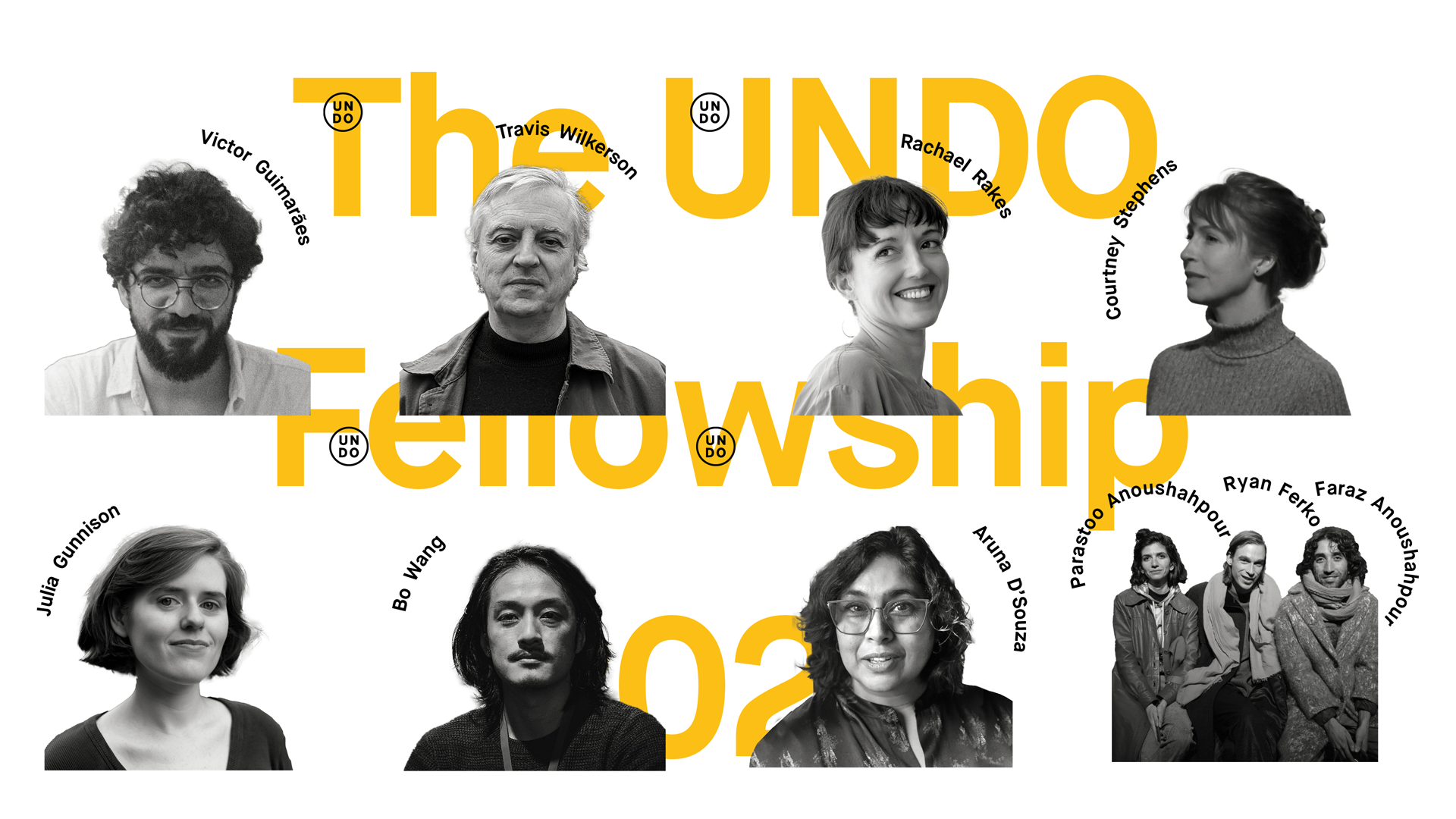In Brasília, Contradições de Uma Cidade Nova, the film’s narrator speaks of “satellite or dormitory cities” that “grow horizontally, according to obsolete urbanistic plans, the very opposite of Brasilia.” This program maps both the official city of monumentalist gestures and the zones that fall outside of any dominant urban imaginary. These films track not only how given spaces and structures can generate or promote patterns of behavior, but also the adaptive strategies invented by residents and laborers. These films constitute counter-histories of the urban situation, and their discursive richness is reflected in the diversity of their soundtracks, which range from polemical narration to interviews to source sound to more essayistic ruminations.
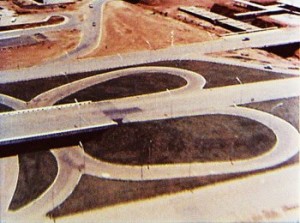
Brasília, Contradições de Uma Cidade Nova, Joaquim Pedro de Andrade, Brazil, 1967, 23′
A film about the “contradictions” of Brazil’s new national capital, co-written by a filmmaker, an architect, and a film critic. Commissioned but subsequently rejected by the Olivetti company and considered missing for decades until a copy was found hidden in the archives of the Museum of Modern Art, Rio de Janeiro.
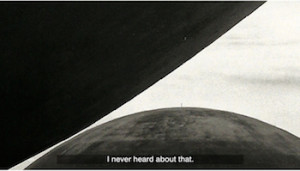
Forma Livre, Clara Ianni, Brazil, 2013, 7′
During the construction of Brasilia, a workers strike was brutally repressed by the police force, killing more than 100 laborers. Lucio Costa, the city’s urban planner, and Oscar Niemeyer, its architect, were asked about the event years later. The accompanying images are based in Costa’s sketches and Marcel Gautherot’s photographs of Brasilia’s construction.
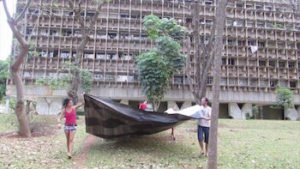
Faixa de Pedestres, Corpos Informáticos, Brazil, 2013, 4′
Corpos Informáticos does not make urban intervention – it makes urban composition…. If art is life, it composes and decomposes. In the streets and alleys, it develops disorder so that the passerby becomes a wanderer. (Bia Medeiros, founding member of Corpos Informáticos)
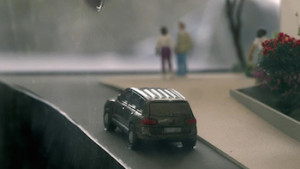
E, Alexandre Wahrhaftig / Miguel Antunes Ramos/ Helena Ungaretti, Brazil, 2013, 17′
Parking as non-being (an old cinema, a vacant lot, a construction site, the ruins of residences). A film that seeks to map this empty space. (Juliano Gomes)
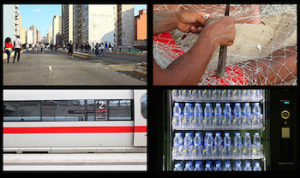
Mind the Gap, Cristian Silva-Avária, Brazil, 2012-2014, 12′
“A video-essay that proposes a reflection on the experience of the temporal dimension in contemporary societies, in contrast to those subjects who remain on the margins of the current chrono-political imposition.” (Cristian Silva-Avária) In Germany, Brazil, and Chile: time as human labor, as automated system, as geological history.
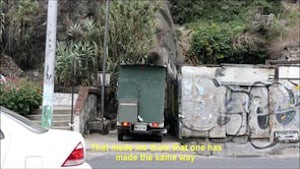
El hueco, Carlos Silva, Chile, 2013, 9′
Three people in a small empty place of the city stress from the point of view of the absurd, the notion of urban landscape with the territory of ideology, design and the forms of economy for their survival.
ABOUT
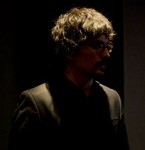
Federico Windhausen is a film scholar and curator based in Buenos Aires. Most recently he curated “El Pueblo: Searching for Contemporary Latin America,” the Theme section for the International Short Film Festival Oberhausen, consisting of 8 programs and 53 films. In 2015 he presented the films of Marie Louise Alemann at TIFF Bell Lightbox (Toronto), the London Film Festival, and Cine Tonalá (Mexico City). His writing has been published in October, Hitchcock Annual, MIRAJ, Millennium Film Journal, Senses of Cinema and others. He is editing A Companion to Experimental Cinema and writing a book on Argentine experimental film.
 Paula Halperin Assistant Professor of Latin American History, Purchase College BA, University of Buenos Aires; PhD, University of Maryland Paula Halperin, a specialist in the history of Latin America, earned her BA with honors at the University of Buenos Aires and her PhD in history at the University of Maryland. Her doctoral thesis examines film and photojournalism in mid-20th-century Argentina and Brazil. Halperin’s research and teaching interests include visual culture studies as well as the social history of the Americas.
Paula Halperin Assistant Professor of Latin American History, Purchase College BA, University of Buenos Aires; PhD, University of Maryland Paula Halperin, a specialist in the history of Latin America, earned her BA with honors at the University of Buenos Aires and her PhD in history at the University of Maryland. Her doctoral thesis examines film and photojournalism in mid-20th-century Argentina and Brazil. Halperin’s research and teaching interests include visual culture studies as well as the social history of the Americas.
The 62nd International Short Film Festival Oberhausen takes place from May 5th-10th, 2016, featuring five competitions (International, German, NRW, Children’s and Youth Films and the MuVi Award) and a number of special programmes.
Cinema Tropical is the leading presenter of Latin American cinema in the U.S. Founded in 2001 with the mission of distributing, programming and promoting what was to become the biggest boom of Latin American cinema in decades, CT brought U.S. audiences some of the first screening of films such as Amores Perros and Y Tu Mamá También. Through a diversity of programs and initiatives, CT is thriving as a dynamic and groundbreaking 501(c)(3) non-profit media arts organization experimenting in the creation of better and more effective strategies for the distribution and exhibition of foreign cinema in this country.


